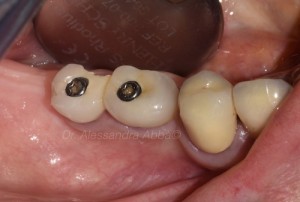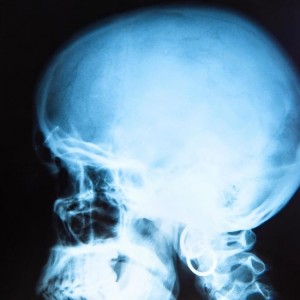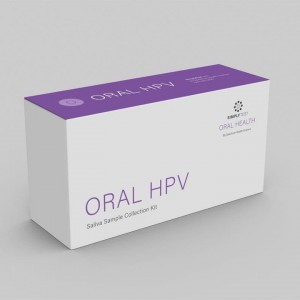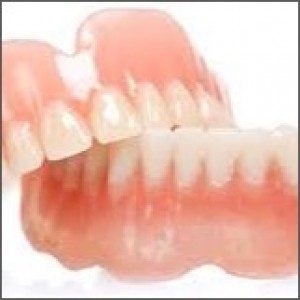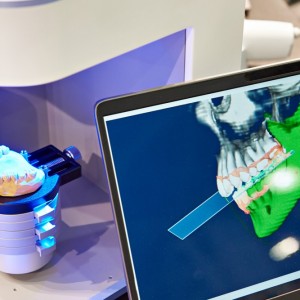
Rehabilitation of endodontically treated molars: is better to choose endocrown or crown with post?
Simona Chirico
The restoration of endodontically treated teeth is always a topic of crucial attention for dentists. If until a few years ago, the therapeutic choice of rehabilitating these elements with a post and a crown was unquestionable, nowadays adhesive dentistry is becoming increasingly popular and has proposed other therapeutic solutions, as partial indirect restorations, with the aim to preserve as much healthy dental tissue as possible.
The therapeutic choices discussed and evaluated in the study of Dejak et al. was performed by evaluating the masticatory stresses that endocrowns and crowns with posts underwent in endodontically treated mandibular molars.
Materials and Methods
Four three-dimensional models of first mandibular molars were created and divided into 4 groups:
1) intact tooth as control group;
2) tooth restored by leucite-reinforced ceramic endocrown;
3) tooth with fiber posts, composite core and leucite reinforced ceramic crown;
4) tooth with cast post and leucite-reinforced ceramic crown.
Crowns and endocrowns were cemented by Variolink II composite luting cement (Ivoclar).
The study was performed using finite element analysis, with contact elements. The computer simulations of mastication were conducted. The equivalent stresses of modified von Mises failure criterion (mvM) in models were calculated, Tsai-Wu index for FRC post was determinate. Maximal values of the stresses in the ceramic, cement and dentin were compared between models and to strength of the materials. Contact stresses in the cement–tissue adhesive interface around restorations were considered as well.
Results
During masticatory simulation, these were the maximal mvM stress values (MPa) showed during the test:
-intact tooth (as control group): 10.7 (vs Enamel/ceramic restoration); 3.4 (vs dentin); / (vs posts); / (vs resin composite luting cement);
-tooth with endocrown: 16.5 (vs Enamel/ceramic restoration); 2.6 (vs dentin); / (vs posts); 1.8 (vs resin composite luting cement);
-tooth with FRC post and resin composite cores: 21.0 (vs Enamel/ceramic restoration); 3.7 (vs dentin); 0.18 (vs posts); 2.9 (vs resin composite luting cement);
-tooth with cast post and cores: 17.6 (vs Enamel/ceramic restoration); 3.2 (vs dentin); 49.5 (vs posts); 2.1 (vs resin composite luting cement).
Conclusions
The lowest stressed values were recorded in molar restored with endocrown. So we can conclude that molars restored by endocrowns are potentially more resistant to failure than those with FRC posts. Under physiological loads, ceramic endocrowns ideally cemented in molars should not be demaged or debonded.
For additional informations: 3D-Finite element analysis of molars restored with endocrowns and posts during masticatory simulation
 Tag
Tag
 Related articles
Related articles
Digital Dentistry 25 July 2022
Digital approach to replicate aesthetic and functional parameters in complete implant rehabilitation
Authors: C. Monaco, N. Ragazzini, L. Card, E. Evangelisti
The introduction of digital technologies in implant-prosthetic dentistry has allowed an improvement in the predictability of clinical results, the reduction...
Prosthodontics 23 May 2021
The clinical success of three-unit fixed prosthetic restorations in zirconia with 14-year follow-up
Zirconia (ZrO2) is a high-strength polycrystalline ceramic and is considered a suitable material for single crowns (SC) and fixed multi-unit dental prostheses (FDP), as it tolerates higher occlusal...
Prosthodontics 29 September 2020
Fixed dental prostheses: which is the gold standard material?
Metal ceramic has always been the golden standard for implant‐supported reconstructions in the past and the most investigated material in literature,...
Prosthodontics 12 February 2020
Which is the best adhesive cementation protocol for glass ceramic restoration?
Dentists must regularly determine the best adhesive cementation protocol for glass-ceramic restorations on posterior teeth. A few in vivo follow-up...
Crown decementation are the most frequent failures in restorations using zirconia as an infrastructure. Increasing the roughness of the zirconia surface has been...
 Read more
Read more
Much like EMTs rushing to the scene after an accident, stem cells hurry to the site of a skull fracture to start mending the damage. A new finding has uncovered the signaling mechanism that triggers...
Products 05 November 2025
SimplyTest has launched a groundbreaking saliva-based test to detect high-risk strains of oral human papillomavirus (HPV), a major cause of oropharyngeal cancers.
News 05 November 2025
Perimetrics, Inc., a dental technology company pioneering quantitative diagnostics, announced today that the U.S. Food and Drug Administration (FDA) has granted clearance for the InnerView...
News 05 November 2025
On October 15, open enrollment for Medicare began nationwide. Hundreds of thousands of seniors in New Jersey will once again face the challenge of finding the right Medicare coverage, including the...
Digital Dentistry 04 November 2025
Digitalisation is an expanding field in dentistry and implementation of digital teaching methods in dental education is an essential part of modern education.





